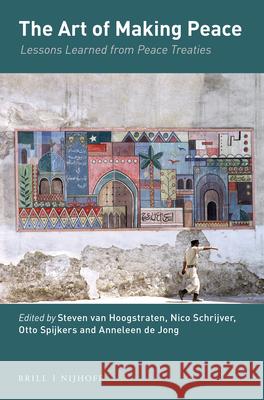The Art of Making Peace: Lessons Learned from Peace Treaties » książka
The Art of Making Peace: Lessons Learned from Peace Treaties
ISBN-13: 9789004321236 / Angielski / Miękka / 2016 / 238 str.
This unique volume looks at international peace treaties, at their results, effects and failures. It reflects the outcome of an international conference held in the Peace Palace (The Hague) on the occasion of the Centenary of this institution, which opened its doors on the eve of World War I. The volume offers the reflections of the leading experts attending the conference and the open debate which followed. The Treaty of Versailles of 1919, the mother of all peace treaties, is the first to be critically discussed. How should this treaty be viewed with the knowledge of today? What are the lessons learned in the light of historic developments? Subsequently, the Dayton Agreement, which sealed the end to the bloody conflict in the former Yugoslavia (1992-1995), and the Sudan Agreement, which came into being after lengthy negotiations in 2005, are analysed in the same way. Finally, the situations which arose in relation to the devastating wars between Iran and Iraq (1980-1988) and between Kuwait and Iraq are discussed. As these states could not reach a settlement themselves, the United Nations Security Council imposed the terms of the ceasefire and peaceful cooperation in important and innovative resolutions. The book offers additional perspective by looking at the role of judicial settlement by the International Court of Justice or the Permanent Court of Arbitration, vis-a-vis the instrument of political mediation between states with the help of a third party. Mediation can be very effective, but certain conditions are required for it to be successful, conditions which are not easy to bring about in today's world. Dispute settlement under international law is and continues to be the core business in the Peace Palace.











